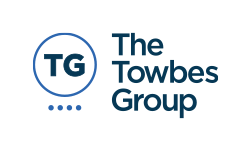Selling Ice Cubes to Eskimos
The saying “he could sell ice cubes to Eskimos” is usually said with one part envy and one part disdain. The ability to sell, whether it be your services, your company’s products or an idea is an important skill and people that do it well are often very successful. It’s one of the most essential skills of an entrepreneur but I believe it’s a skill that everyone could benefit from improving. That’s because on the most basic level, “selling” is just enrolling someone in a course of action that you would like them to take. This applies as much to convincing your family or friends to go to Cancun for a vacation as it does to convincing a prospect that they should buy from you.

The problem is, many people have a bad impression of sales and sales people. This comes from the fundamental idea behind “selling ice to Eskimos,” which is that selling has to do with convincing someone to do something that they don’t want to do or that would not be beneficial to them. For most of us, this idea goes against our basic conscience which is why it is so distasteful. Also, most of us have been on the receiving end of a sales pitch by someone who could care less about our satisfaction and just wants to make a sale.
Good selling is exactly the opposite of this. Good selling is closer to the idea of “selling parkas to cold Eskimos”. It is a beneficial service to the customer. If done well, the customer thanks you, refers other people to you and becomes a repeat customer themselves.
Good selling is called “consultative” selling because you consult with your prospects about their current situation, the issues they are experiencing and discuss different ways to solve their problem. Key to this type of selling is listening. The best sales people are the best listeners. They hear what their customers want – both the spoken and unspoken wants – and they act to try to satisfy those desires. Listening is not a passive activity. The most effective type of listening is active listening which requires interacting with prospect to make sure that communications is occurring. Phrases you will hear regularly from active listeners include:
- Let me see if I understood you…
- Is this what you meant?
- What I heard you say is…
By repeating or rephrasing what your prospect said, you not only ensure that communication has occurred between you but you also give them a chance to reflect on what they’ve said and clarify if there was something missing from their communication. Active listening creates trust and trust is the single most important factor in a sale. The prospect needs to trust that their desire will be satisfied through the purchase they are making.
Good selling is also educational. A sales person should be an expert in what they sell and should be a wealth of information about their own product or service as well as their industry as a whole. By educating people on the pros and cons of a particular product or service, the prospect can make a more informed decision and therefore be more likely to be satisfied with their purchase over time.
Practice these fundamental aspects of good selling, whether in your personal or professional list, and you will enjoy the many rewards, financial as well as personal, of consistently satisfying people’s wants and needs.

































